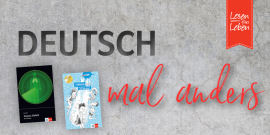
Questions, questions, questions
Teaching tip
1 Who am I?
This game practises second person questions: Are you…? Do you…? Have you got …? Did you…?
Think of a famous person, Barack Obama or Kylie Monogue for example, and the students have to guess who you are but you can only answer yes or no. For example, Are you a man? Let students take turns to think of a famous person.
Check for correct question formation.
2 I have no idea who I am!
This game practises first person questions: Am I…? Do I…? Have I got…?
Put a sticky label with the name of a famous person on a student’s back (or they can stick it to their forehead).
This time the ‘famous person’ does not know their identity but the rest of the class does.
You could put a label on everyone’s back and students work in pairs to identify who they are.
3 Animal, plant, man-made
This game practises third person questions: Is it…? Does it…? Has it got…?
Think of an object (examples: a cat is animal, a tree is plant and a dishwasher is man-made) and the students have to guess what the object is. Again, this only produces yes/no answers, so encourage everyone to listen to the questions other students ask.
4 Famous person interview
Tell students they are going to interview a famous person (as yet unknown). Ask them to write five questions: for example, Where do you live? What is your favourite hobby? … When the questions are written, give each student the name of a famous person, for example Hillary Clinton or Heidi Klum. Give students five minutes to look online for facts about this person.
In turn, each person is interviewed in their ‘famous person’ persona by the other students.
If the student doesn’t know the answer, they can make up an answer.
5 New partner
Imagine your daughter, son, best friend or parent has a new partner. You want to know everything about them.
Write as many questions as you can in ten minutes.
Another student plays the part of the new partner and answers the questions.
At the end, you decide: are they good enough to be the new partner?
6 Dice game
The numbers on the dice represent different question words:
1 = How, 2 = When, 3 = Why, 4 = How, 5 = What and 6 = Do
In pairs students take it in turns to roll the dice and then ask a question starting with that word.




















